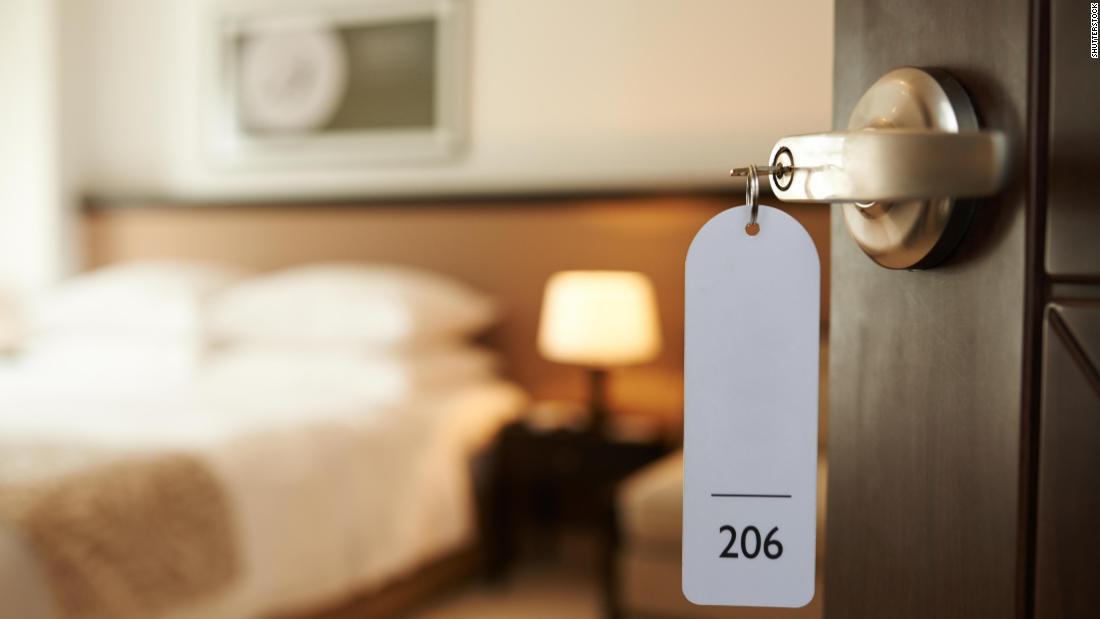Editor’s note: During the coronavirus pandemic there are few activities that do not carry risks, but there are ways to mitigate them. People who are already fully vaccinated, of course, have a much lower risk of catching and transmitting the coronavirus than those who have not yet been vaccinated. Citizen Free Press Medical Analyst Dr. Leana Wen advises you to keep this in mind when making decisions about what to do.
After staying close to home for a year or more, escaping to a dazzling destination and enjoying a luxurious hotel room may top your bucket list.
Staying in a hotel is a very low risk activity if you get vaccinated, stay separated from other people and go directly to and from your room, explains Dr. Leana Wen, Citizen Free Press medical analyst, emergency physician and visiting professor of Policy and Health Management at the George Washington University Milken Institute School of Public Health.
If you’re not traveling alone, “you certainly shouldn’t share a hotel room with someone outside your immediate home, unless the other person is fully vaccinated,” Wen said.
Before arriving at the hotel
The protocols of many hotels against covid-19 have changed during the pandemic. For this reason, you should check the accommodation website or call for information on security precautions.
Ask about the property’s new cleaning and sanitizing procedures and if all employees wear a face mask.
Many hotels have cut back on room cleaning and food and beverage services to limit guests’ contact with outsiders. It is also common that you can check-in, check-out and payment online and without contact. And you may have a room key on your mobile.
Also ask about the quality of ventilation. Opening windows and doors, using window fans, having a well-functioning ventilation system, and high-efficiency HEPA filtration systems that improve air cleanliness are some good signs, according to the Centers for Disease Control and Prevention (CDC). , for its acronym in English).
Based on the quality of the ventilation, you should also check when was the last time other guests or cleaning staff were in your room, said Krystal Pollitt, associate professor of epidemiology at the Yale School of Public Health, and adjunct professor of Chemical and Environmental Engineering at the Yale School of Engineering and Applied Sciences.
“Much of the time we recommend between occupants within a space is related to what that (ventilation) system is capable of handling in terms of air changes per hour,” said Pollitt. “Normally, even if it is a space of 15 minutes, if it is a modern building with mechanical ventilation we consider that it is sufficient,” he explained.
What should you do while you are at the hotel to avoid covid-19?
While at the hotel, be careful with your safety and that of the staff. The coronavirus is spread by respiratory droplets during close physical contact and through the air. Avoid places where you share air or space with other people or wear a mask when you are in them. This includes elevators, enclosed bars, dining rooms, and lobbies, even if people keep their distance.
Minimize the use of recreational spaces, including hot tubs and rest areas, the CDC has advised.
Carry disinfectant wipes to clean items before and after touching them, said Dr. Ada Stewart, a family physician at Cooperative Health in Columbia, South Carolina, and president of the American Academy of Family Physicians.
Of course, you have to eat, but avoiding the indoor dining room of a hotel or restaurant is still the safest thing to do.
It is best to ask delivery, take out (or room service) or al fresco dining. In all these cases you should keep a distance of at least two meters.

